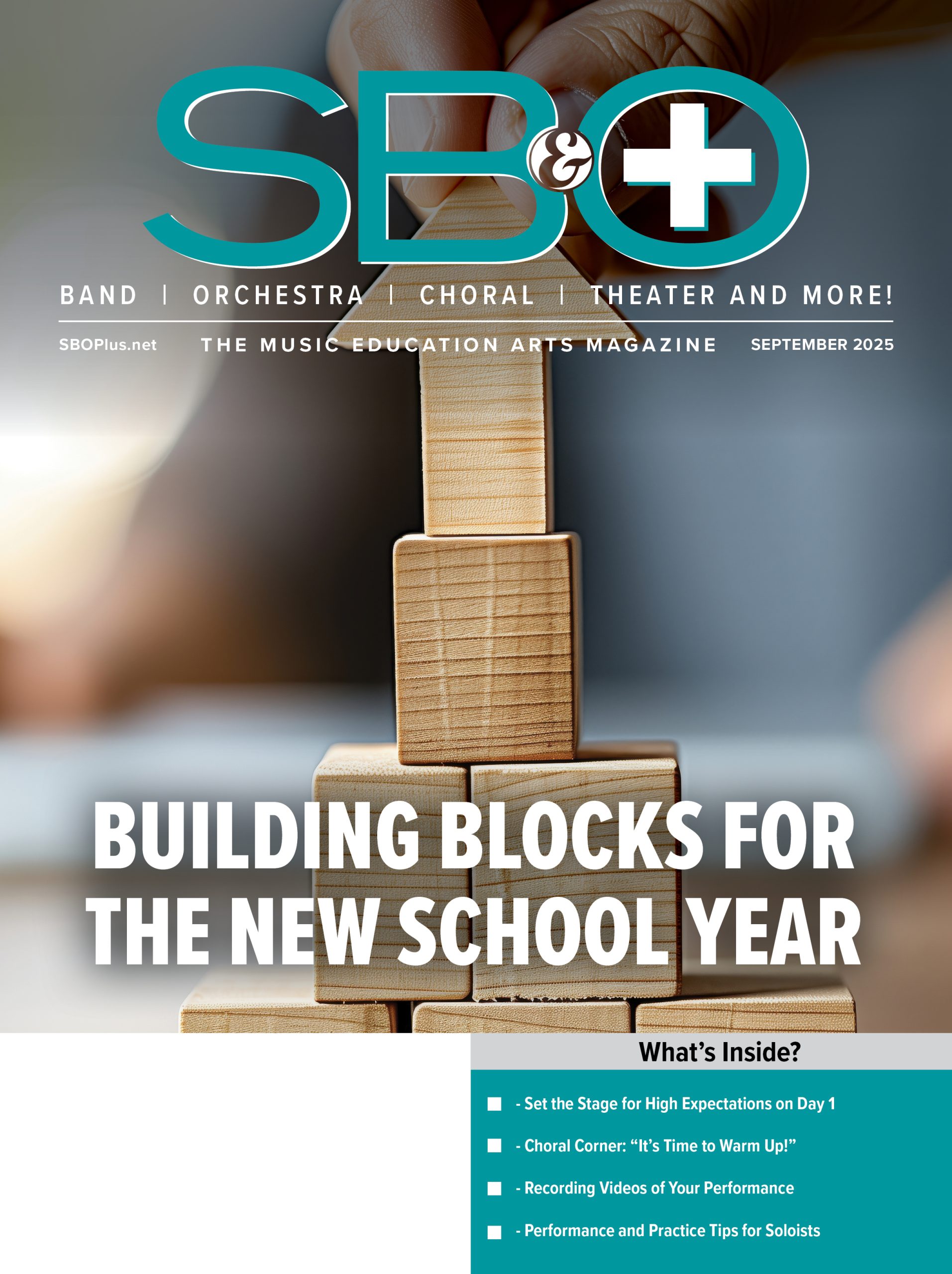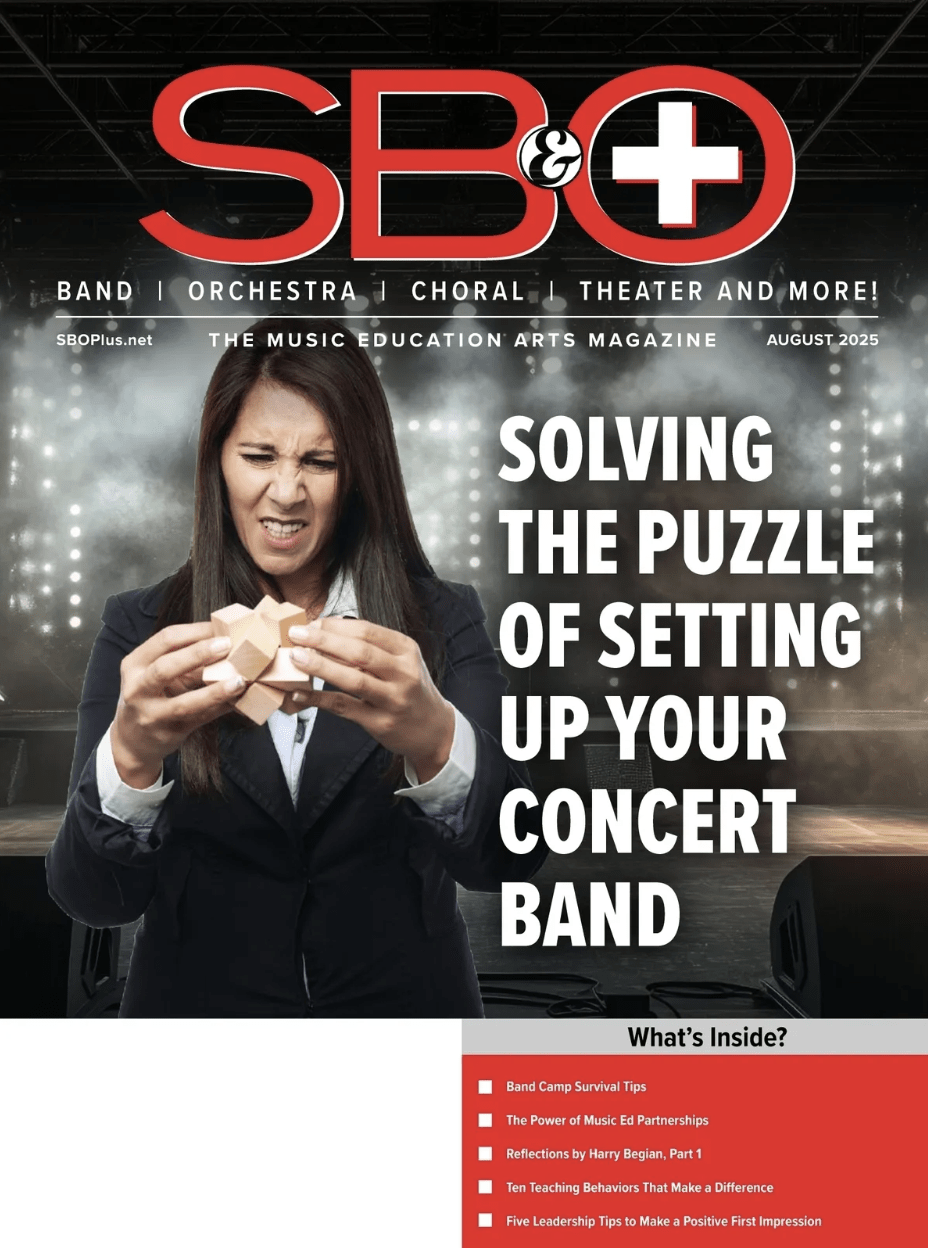Foundational music experiences are more than just a fun introduction to music—they are essential building blocks for a lifelong engagement with the arts. For students in the earliest stages of learning, these experiences foster not only musical skills but also critical social-emotional development, cognitive growth, and cultural understanding. When students are given equitable access to high-quality, sequential, and standards-based music instruction from the start of their academic journey, they are more likely to continue in music throughout their educational careers and into adulthood.
Why Foundational Music Experiences Matter
There is a strong body of evidence that suggests students engaged in the arts demonstrate increased academic achievement and higher rates of school engagement, particularly when those experiences begin early and continue consistently throughout their education. Reports published by the Arts Education Partnership, Music Matters: How Music Education Helps Students Learn, Achieve, and Succeed (2011), and the National Endowment for the Arts, The Arts and Achievement in At-Risk Youth: Findings from Four Longitudinal Studies (2012), for example, summarize research and highlight key findings. Early musical experiences are uniquely positioned to strengthen and support the following areas:
Cognitive Development: Music strengthens memory, language processing and acquisition, spatial reasoning, and executive function.
Social-Emotional Growth: Singing, movement, and group play build empathy, cooperation, and emotional regulation.
Cultural Awareness: Students are introduced to cultural perspectives, encountering diverse musical traditions, gaining a broader understanding of the world, and helping students appreciate diverse traditions and communities through music.
Musical Skill Development: Fundamental musical literacy skills are developed and refined, including beat competency, pitch matching, expressive movement, and beginning notation.
Foundational music experiences should align with state and national music standards, ensuring students receive instruction that builds musical understanding sequentially and meaningfully. General music instruction in the elementary years introduces students to skills they will need in future ensemble participation—such as singing in tune, moving to a steady beat, and understanding musical symbols. Instruction should also support student development and interest in non-ensemble courses, including but not limited to music technology, music production, and piano. Play is a vital component of the elementary general music classroom, fostering creativity, exploration, and joyful engagement with music. Through playful activities like singing games, movement, and improvisation, students develop musical skills naturally while building confidence, collaboration, and a lifelong love of learning. These foundational skills are widely recognized by employers as key to success in today’s fast-paced, complex, and ever-evolving workforce.
The National Association for Music Education (NAfME) recommends all elementary students receive regularly scheduled music instruction delivered by a certified music educator. These consistent experiences are key to ensuring students develop skills over time rather than encounter music sporadically or through one-off experiences. For foundational music experiences to be successful, students must have access to quality instruments, safe and functional spaces, and appropriate class sizes that allow for active participation. Equally important is the presence of a certified, highly qualified music educator equipped with professional learning opportunities and time to plan instruction centered around sequential lessons, standards-based targets, and culturally responsive practices. There are just under 50 million public school students in the United States, and the work of our elementary music teachers to instill a love of music is a critical component to ensuring they continue their musical education beyond compulsory music instruction.
While many states have policies to protect early foundational music education, particularly at the elementary level, these policies are often vague and leave significant discretion to local school districts regarding staffing and number of minutes. As a result, access to high-quality music instruction varies widely, creating serious equity and access issues. The uneven distribution of funding, resources, and qualified educators disproportionately affects students in under-resourced communities. When students do not have consistent access to well-rounded and culturally responsive music programs, we risk narrowing their musical experiences and reinforcing a singular approach to music literacy. Ensuring equitable access to foundational music education is not just a policy issue—it’s a matter of educational justice.
Using the NAfME Music Teacher Profession Initiative (MTPI) Blueprint
Which outlines a comprehensive vision for cultivating a thriving music education profession. Within this blueprint, the importance of foundational music experiences is deeply embedded in the long-term health of both students and the teaching profession. Ensuring strong beginnings supports not only student musical growth but also music teacher development, recruitment, and retention. NAfME’s MTPI Blueprint outlines four focus areas critical to the future of the music education profession. Early music experiences directly support each of these domains.
Recruitment and Diversification: Students exposed to meaningful early music instruction are more likely to see themselves as future music-makers and music educators. When foundational programs are inclusive and culturally sustaining, they open doors for a more diverse pipeline of future teachers who reflect the students they serve.
Teacher Preparation: Pre-service teachers benefit from observing and working in strong elementary music classrooms. High-quality programs and teachers serve as lab spaces for teacher candidates to see best practices in action, reinforcing pedagogical strategies and classroom management tools critical to their development.
Mentorship and Induction: Veteran teachers in elementary general music roles can serve as mentors, shaping the next generation of educators. A strong early music environment creates opportunities for intentional collaboration between novice and experienced teachers, supporting smoother entry into the profession.
Professional Learning and Leadership: Strong foundational music programs create teacher leaders who advocate for developmentally appropriate practice, equitable access, and curriculum design that supports the full music education continuum. These leaders shape district and state-level decision-making, supporting systems that sustain both students and teachers.
What This Means for Schools and Leaders
Investing in early music education is not optional—it’s essential. Students who begin with strong musical foundations are more likely to enroll in elective music courses in later grades; experience a sense of belonging within musical communities; and build skills transferable to other disciplines, including collaboration, discipline, and creativity. When we view early musical experiences as a launchpad to musical achievement later in life, we intentionally consider how to fully cultivate these experiences to create sustaining, thriving music programs in our communities beyond the K–12 experience.
Whether through scheduling practices, equitable staffing, or investment in early music curriculum, administrators and advocates must recognize that foundational music is professional preparation—not just for students, but for the entire field. When music educators, school leaders, and policy advocates prioritize these early experiences and elevate those who teach our youngest musicians, we create a ripple effect that sustains music programs and supports the whole child. These critical first steps cultivate artistic identity, musical literacy, and a lifelong love for the arts. Strong foundational music education experiences create the conditions for future success in music classrooms, ensembles, and beyond, forming the basis for thriving, sustainable music programs.
Dr. Annamarie Bollino is NAfME Southern Division President-Elect



























